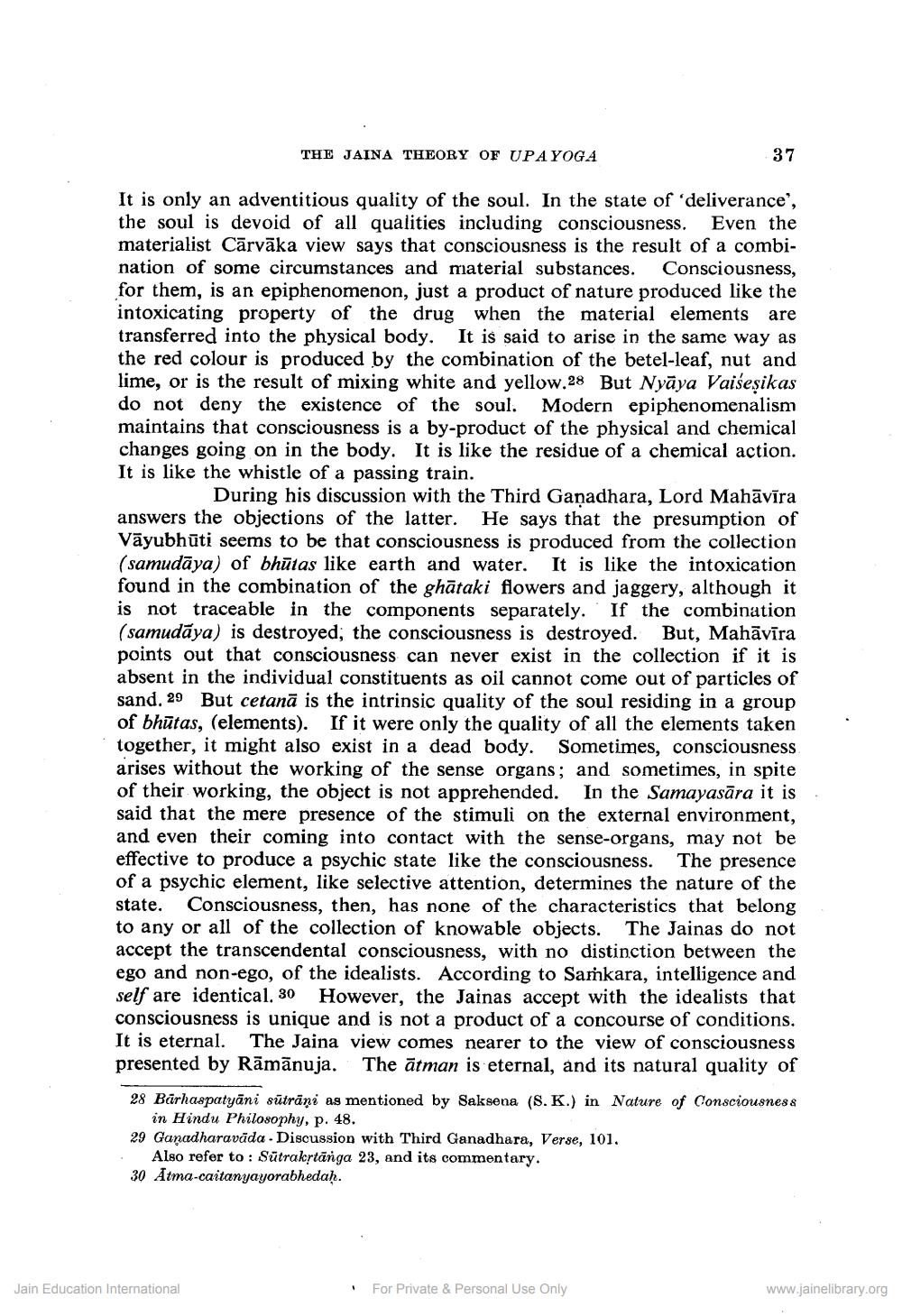________________
THE JAINA THEORY OF UPAYOGA
It is only an adventitious quality of the soul. In the state of 'deliverance', the soul is devoid of all qualities including consciousness. Even the materialist Cārvāka view says that consciousness is the result of a combination of some circumstances and material substances. Consciousness, for them, is an epiphenomenon, just a product of nature produced like the intoxicating property of the drug when the material elements are transferred into the physical body. It is said to arise in the same way as the red colour is produced by the combination of the betel-leaf, nut and lime, or is the result of mixing white and yellow.28 But Nyaya Vaiseṣikas do not deny the existence of the soul. Modern epiphenomenalism maintains that consciousness is a by-product of the physical and chemical changes going on in the body. It is like the residue of a chemical action. It is like the whistle of a passing train.
37
During his discussion with the Third Gaṇadhara, Lord Mahāvīra answers the objections of the latter. He says that the presumption of Vāyubhūti seems to be that consciousness is produced from the collection (samudaya) of bhūtas like earth and water. It is like the intoxication found in the combination of the ghataki flowers and jaggery, although it is not traceable in the components separately. If the combination (samudaya) is destroyed, the consciousness is destroyed. But, Mahāvīra points out that consciousness can never exist in the collection if it is absent in the individual constituents as oil cannot come out of particles of sand. 29 But cetana is the intrinsic quality of the soul residing in a group of bhūtas, (elements). If it were only the quality of all the elements taken together, it might also exist in a dead body. Sometimes, consciousness arises without the working of the sense organs; and sometimes, in spite of their working, the object is not apprehended. In the Samayasara it is said that the mere presence of the stimuli on the external environment, and even their coming into contact with the sense-organs, may not be effective to produce a psychic state like the consciousness. The presence of a psychic element, like selective attention, determines the nature of the state. Consciousness, then, has none of the characteristics that belong to any or all of the collection of knowable objects. The Jainas do not accept the transcendental consciousness, with no distinction between the ego and non-ego, of the idealists. According to Samkara, intelligence and self are identical, 30 However, the Jainas accept with the idealists that consciousness is unique and is not a product of a concourse of conditions. It is eternal. The Jaina view comes nearer to the view of consciousness presented by Rāmānuja. The ātman is eternal, and its natural quality of
Jain Education International
28 Bārhaspatyāni sūtrāņi as mentioned by Saksena (S. K.) in Nature of Consciousness in Hindu Philosophy, p. 48.
29 Ganadharavada Discussion with Third Ganadhara, Verse, 101.
Also refer to: Sütrakṛtänga 23, and its commentary. 30 Atma-caitanyayorabhedaḥ.
For Private & Personal Use Only
www.jainelibrary.org




